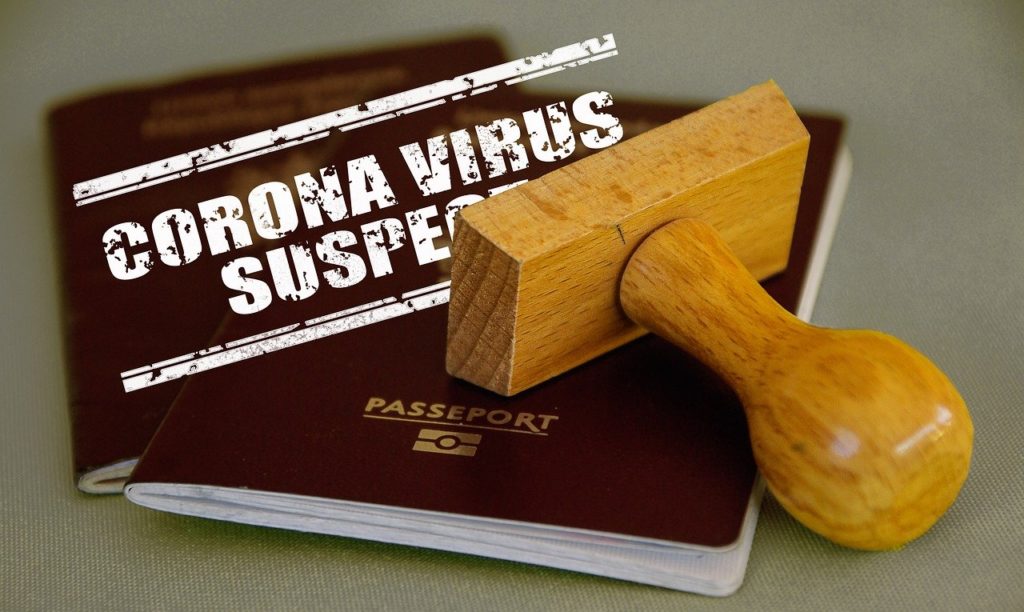
President Donald Trump has recently announced a 30-day ban on travel to most part of Europe. This came as a measure to reduce the rate of the spread of coronavirus in the United States of America. Since the World Health Organization (WHO) announced the virus as a pandemic, more efforts are being put in place to reduce the spread all over the world. Part of this effort is the total lockdown of over 60 million residents of Italy – the toughest response to coronavirus witnessed outside China where it first started.
The ban implies that US citizens will not be able to travel to the following Schengen area for the period for which the ban is imposed – Austria, Belgium, Czech Republic, Denmark, Estonia, Finland, France, Germany, Greece, Hungary, Iceland, Italy, Latvia, Liechtenstein, Lithuania, Luxembourg, Malta, Netherlands, Norway, Poland, Portugal, Slovakia, Slovenia, Spain, Sweden and Switzerland. There are some other countries in Europe with reported cases of the virus where the travel ban does not apply. Countries like the United Kingdom, Ireland, Romania, Bulgaria, Croatia and Cyprus are exempted from this ban at present.
Also, foreign nationals who have entered any of the Schengen area within the last 14 days will not be allowed to enter the US. According to the White House, if a US citizen has been to the Schengen area in the last 14 days, such person will be screened at any of the screening centres at the airport. These measures are introduced to combat the rapid spread of the virus in the US.
“The restriction applies to foreign nationals who have been in the Schengen Area, 26 countries in Europe with open borders agreements, in the last 14 days,” a White House statement said. “Those who are exempt from these restrictions, such as American citizens, will be directed to a limited number of airports where screening can take place.
There was no prior notification to the EU leaders of this ban before it was imposed. The European Union consider the decision of the White House as a unilateral action. What they had expected was cooperation to resolve the issue. The argument was that since coronavirus is a pandemic affecting all 6 inhabited continents, global efforts should be concerted to find a solution to the pandemic and not a ban.

As for the UK, President Trump claimed they are taking good measures to control the spread of the virus and because of that, they are not affected by the ban. It seems the UK is not planning on imposing a similar kind of ban. British finance minister Rishi Sunak told BBC Radio 4’s Today programme: “With regard to flight bans, we are always guided by the science as we make our decisions here, and the advice we are getting is that there isn’t the evidence that interventions like closing borders or travel bans are going to have a material effect on the spread of the infection.”
According to IATA, if the coronavirus continues to spread, the global airlines may lose $113 billion just like in 2008 when there was a global financial crisis. With the Trump ban in place, IATA claims things could get worse. Airlines are taking measures to reduce costs. The effect of the hit will be felt mostly by airlines without government or investors backing.
Delta airlines have suspended flights en route the banned European countries from Friday. The affected routes are: Cincinnati-Paris, Indianapolis-Paris, Orlando-Amsterdam, Portland-Amsterdam, Raleigh/Durham-Paris, Salt Lake City-Amsterdam and Salt Lake City-Paris. Norwegian Air has suspended over 4000 flights and laid off some workers just to save head from heavy debt.
Different business meetings and personal travels have been affected by the coronavirus. Most business meetings were cancelled until further notice. Tourist attractions no longer receive the usual crowds they used to. Things will begin to fall back in place once the pandemic is contained.

Pingback: No Travel: Stay Safe from Coronavirus - EU Traverse
Pingback: Covid-19: Europe and the U.S. May Extend Travel Ban - EU Traverse
Pingback: US Citizens Can Travel to Croatia for Tourism - EU Traverse